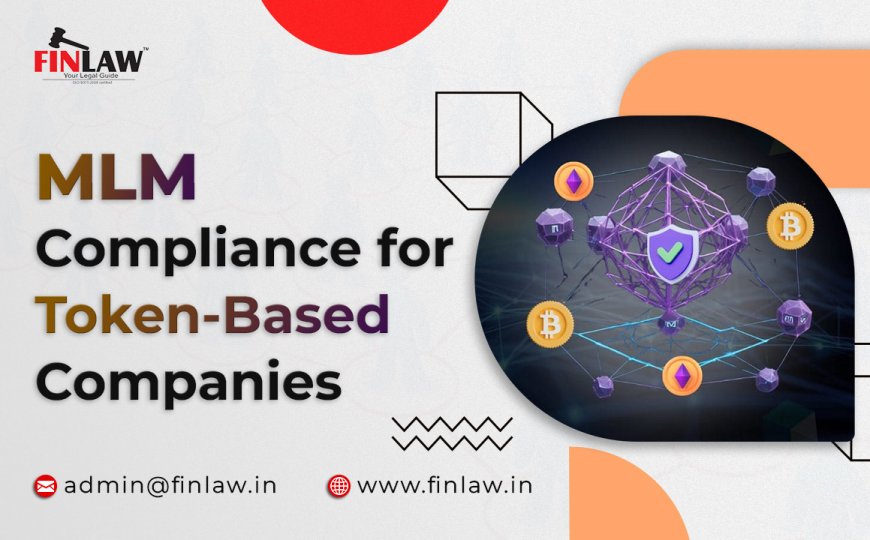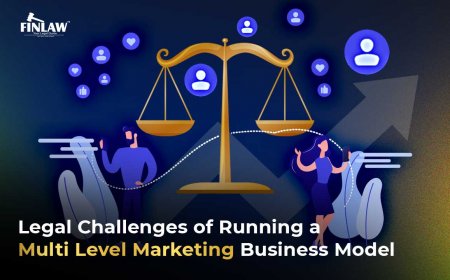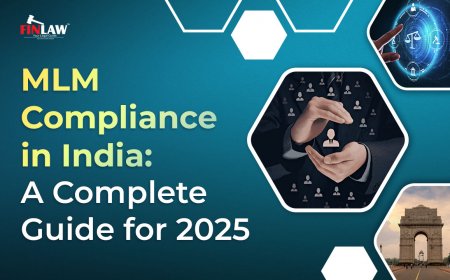MLM Compliance for Token-Based Companies: Navigating Legal and Regulatory Challenges
Navigate the legal compliance challenges of MLM for token-based companies. Learn about regulatory compliance, risk, and building a compliant business model.

Recently, the confluence of multi-level marketing (MLM) and technology has opened new business opportunities particularly for token-specific companies utilizing tokens, which represent aspects of their incentive and compensation plans. From its advantages, token-focused companies may be looking at the fusion of MLM and cryptocurrency as a modern way to decentralize incentives and pave the way for inclusivity. However, as this hybrid model and market evolves, it is encountering some regulatory and legal challenges. MLM compliance for token-based companies is a serious problem because there is a propensity for the hybrid model to break the law, due to the combined factors of recruitment-based compensation and tokenized assets.
Understanding the MLM Compliance for Token-Based Companies Environment
Multi-level marketing is a legitimate business model where participants can obtain commission with respect to their own sales, as well from the sales of the people they have recruited into the business. While in many jurisdictions MLMs are quite legal, there are usually concerns levied against similarities to legal pyramid schemes, particularly with respect to compensation based on recruitment rather than the value of the actual product/service offered. Token-focused companies are operating in the blockchain space and are providing cryptographic tokens for either or both payment (utility), governance or as an investment.
When a business combines these two models: rewarding people with tokens for building networks, it raises regulatory flags for regulators, particularly securities regulators and consumer protection regulators.
Compliance Is Not Optional
Compliance in this hybrid space is not optional. Regulators, such as the U.S. Securities and Exchange Commission (SEC), the Financial Conduct Authority (FCA) in the UK, and other similar agencies around the world, are focused on MLM structures that have a token reward component. There are several concerns, but a key one is that we may be holding out tokens without properly offering the and thus are a license to offer securities. There are serious implications to the liabilities and risks, especially if a token is being used as a profit-sharing or investment product. Most importantly, if the token qualifies as a security under the Howey Test, or other country-based tests, and it is being offered through an MLM model, the offering is an unregistered security offering.
Another concern is if a participant earns a token through only the recruitment of others as opposed to selling actual products or services, it may also lead to the plan being classified as an illegal pyramid scheme.
Token Incentives and Legal Issues
Of the many legal issues surrounding token MLM companies, perhaps the most significant is the lack of a real value proposition for the product or service. If the only value new members receive is the right to participate in a common compensation plan, the scheme can be characterized as a financial scheme. Another problem is marketing campaigns of token MLMs. They often use language about passive income, guaranteed returns, or guaranteed liquidity or appreciation of tokens, all of which amount to false advertising or represent an intentional breach of consumer protection regulations. To make matters worse, token payouts involve international transactions that can normally trigger anti-money laundering (AML) and know-your-customer (KYC) compliance problems. Particularly, governments will be less forgiving with blockchain entities that do not establish strong customer identification and financial reporting controls.
Creating a Legally Compliant Model
Given these risks, token based MLM companies must adhere to practices that follow some commonly accepted best practices. The first step is to determine the legal classification of their token; they should get the advice of an attorney to help determine if the token is a utility, security or for payment. Once it is determined what type of token they have, then they can consider the regulatory obligations that apply to them. The second step is to ensure the MLM plan is structured in relation to a real product or service. Participants' rewards should primarily be tied to product sales and not recruiting. The further distance they can put between their operation and pyramiding, the better. The more transparent the compensation structures and easy to understand, the better. They should try to avoid sophisticated, tiered, multi-layered payout type structures that reward recruiting more than selling.
Ethical Marketing and Communication
Another important dimension is marketing and communication. Token-based MLM companies should avoid making exaggerated claims regarding income or speculative statements about the value of tokens. All marketing materials must be truthful, clear and include risk disclosures. Companies must also implement AML and KYC procedures, not just for compliance, but to build trust. As well, companies should use geo-fencing to avoid participation from jurisdictions where it is illegal to operate such MLM models or offer sell tokens. Companies should also apply height to determine whether their token distributions are subject to regulation. If the token looks like a security, the company should attempt to file or obtain an exemption for the offering.
Regular Compliance Audits and Legal Reviews
Regular compliance reviews and legal audits should be conducted consistently, as the regulations surrounding crypto assets and MLM referendums are evolving very quickly. Some high-profile examples demonstrate what not to do. Take BitConnect, for example. They offered token rewards in exchange for recruitment and were ultimately shutdown as a Ponzi scheme. Forsage was built on Ethereum decentralized smart contracts which utilized a decentralized MLM system - this startup was shut down as a pyramid scheme by the SEC. More recently, HyperFund instituted a token-based income structure which rewarded recruitment and has already started having governments looking in that space to commence investigations. The above examples highlight that one needs to create a business model that prioritizes regulatory compliance overgrowth.
Regulation Will Tighten
As we look forward, it is evident that regulation is going to become more stringent. In Europe, the Markets in Crypto-Assets Regulation (MiCA) framework will have strict rules around the issue and use of tokens. In the U.S. the SEC continues to broaden its enforcement actions with respect to the crypto space. For token-based MLM companies that want to operate legally and sustainably, they will need to start acknowledging compliance as part of their DNA in all aspects of their business. This means that token-based MLM companies have legal compliance first but they will also need to demonstrate ethical marketing compliance, particularly with respect to transparency around compensation and value of actual product.
Though a kind of innovation and incentivized practicum exists with the combination of tokens and MLMs, including scrutiny by the law. In token-based companies, the compliance with MLM is very intricate, and the requirements demand a multidisciplinary approach to legal, financial, and operational control; and by emphasizing transparency, consumer and/or investor protection, compliance with regulatory requirements, and real value within the economy, it is possible to successfully maneuver through the complexity of establishing trust and resilient organizations in the blockchain era.
By focusing on transparency, customer protection, regulatory adherence, and real economic value, companies can successfully navigate this challenging terrain and build resilient, trustworthy organizations in the blockchain era. Ultimately, compliance is not just a legal obligation, it is a strategic imperative that fosters investor confidence, protects users, enables global scalability, and positions token-based MLM companies for sustainable success in an increasingly regulated and complex digital economy.
What's Your Reaction?



















